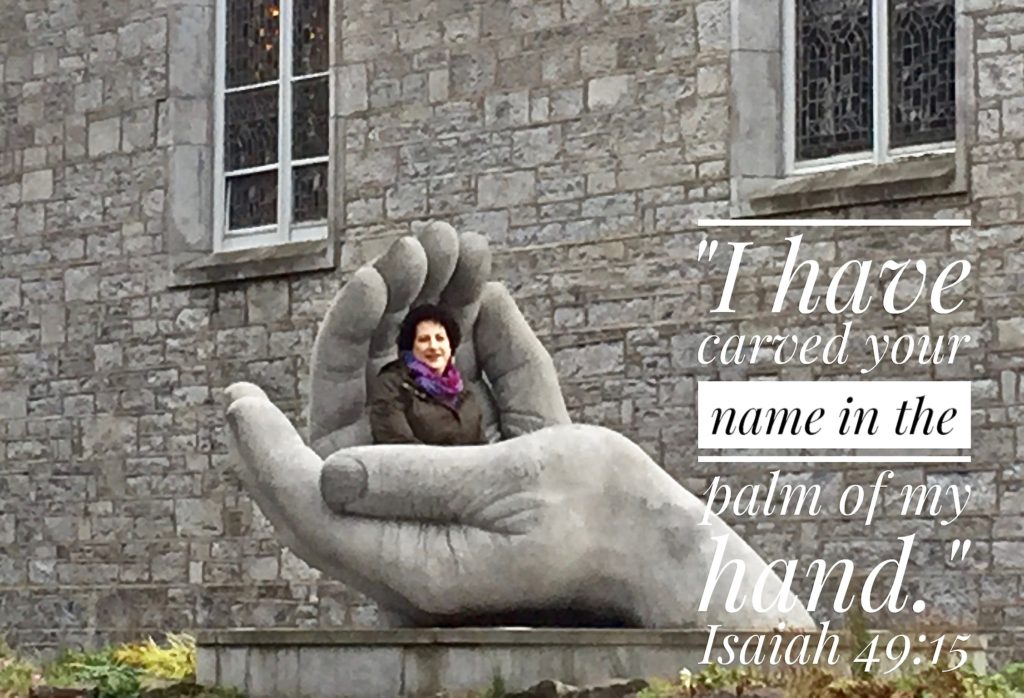
My father’s name was Howie.
When my Mom called him for dinner, when my cousins greeted him, when my grandmother disparaged him behind his back, it was always “Howie.” Howie was the silent, sitting- on-a-powder-keg-of rage, odd man out in our house full of women. His name was Howie and because I knew his name, I thought I knew him.
My father’s name was Nicholas.
One day my father handed me my freshly signed report card with a name I didn’t recognize: Nicholas. Who on earth was that? And that was how I heard the story of the group of friends he hung out with when he was growing up— a group I always envisioned as Depression-era ragamuffins that were naughty but not really Bad. There was another Nick in that group, and apparently, it wouldn’t do to have two, so they chose another name for my Dad. There was still plenty of discrimination against Italians in those days— my uncle changed his last name so he could get a good job on Wall Street — so maybe it isn’t so strange that given the choice, they chose something as all American as Howie.
Nicholas was the child of immigrants who were looked down on, eager to fit in, willing to give up his claim to his name in the cause of friendship and assimilation.
My father’s name was Angelo.
One day when I was a teenager, I discovered that my father wasn’t Nicholas, either. His name was Angelo.
My uncle let it slip and explained that Angelo was a name my Dad hated, so as soon as he had any agency at all, he asked to be called by his middle name, Nicholas. It wasn’t until after he was gone that I understood why.
A brittle yellow birth certificate, carelessly stored in a shopping bag in a dank basement, recorded my grandmother’s first-born sons — twins named Philip and Angelo. Now, I knew that one of the twins had died in infancy, but I never knew his name. My grandmother named her next son — my Dad — Angelo. My father was named after a dead baby, long missed and mourned.
Angelo was the child that never never felt good enough, was loathe to displease, and couldn’t wait to cast off the shroud he was made to wear.
There are the names we are given.
There are the names we give ourselves.
And there is the name God gives us.
And all of them define us, shape us, can be sources of pride or pain, conveying love or rebuke, revealing or concealing our true nature.
Our birth names are given before anything is really known about us — whether we’re serious or goofy, exotic or run-of- the-mill. Sometimes these names are nothing but a burden that is too heavy to bear, like being named after a dead baby.
The names we acquire later in life define us as well. They can be nicknames — playful or cruel, loving or mocking. (Italians are famous for bestowing less than delightful nicknames. I actually had a relative that people called Cockeyed Mary — to her face.) After longing for a nickname as a child, I did acquire one as an adult, and I came to love it.
Then there are the names that God gives us. Of course, He calls us His children, His beloved. Sometimes God’s unique name for His child is revealed in this lifetime, like when Jacob is renamed Israel or Simon is renamed Peter — names that embody who they are to become.
I believe that God has such a name for each of us, a name we might never know until we see Him face to face. I imagine when my Dad died and was reunited with the One who created him, God didn’t call him Angelo, or Nicholas or even Howie. These were names he was given, or gave himself. But God, who knew my Dad before he was formed in the womb, had already given him his identity.
I like to think that along with my new, resurrection body, God will greet me with the name I have had from the beginning, the name He has given me, the name I will recognize instantly when I hear it. I will know at once that with this name, God is recognizing and celebrating my essential nature and character. The names I have been given, or have chosen for myself have served me well in this life. But God’s name for me, well, that will be the keeper.

Love it!!! Laura: “crown of Laurel”. You are truly a winner in life and eternity! Well done good and faithful servant.
Well done, Lola.
Thank you, once again, for leading me to think, to cry, and to long for time hereafter.
Marcia’s Ernest.